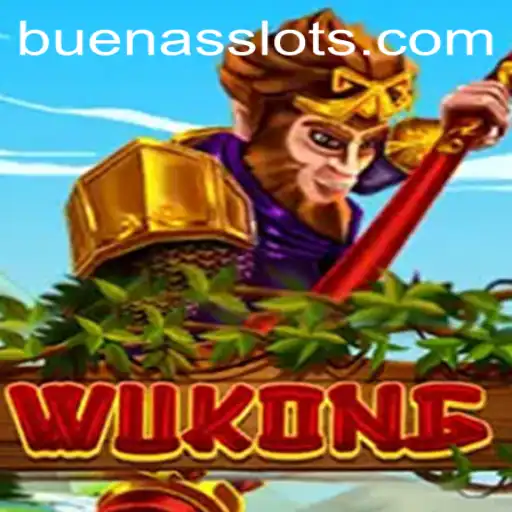
Exploring the Excitement of RicoGorila
Dive into the thrilling world of RicoGorila, an engaging game capturing players with its unique mechanics and exciting gameplay combined with the keyword BUENAS.

The gaming industry has seen a remarkable surge in creativity and innovation, blending elements of history and mythology with intricate strategic gameplay. One of the standout titles making waves is Poseidon, a game where players embark on a thrilling journey through the realms of Greek mythology. Unearth the mysteries of the sea god, Poseidon, as you navigate challenges and build your dominion.
Poseidon, as the name suggests, is inspired by the ancient Greek god of the sea, storms, and horses. Designed to immerse players in a world where mythology comes to life, the game challenges individuals to think strategically, make tactical decisions, and engage in battles that mirror the legendary tales of old. Poseidon caters to both seasoned gamers and newcomers alike, providing a backdrop rich with lore, exploration, and strategic prowess.
The developers have dedicated extensive resources to ensure the game reflects significant historical and mythological accuracy, while also introducing innovative mechanics that set it apart from other strategy games. The balance between storytelling and gameplay is a delicate one, with Poseidon mastering this blend through compelling narratives and dynamic plot twists.
At its core, Poseidon is a strategy game where players assume the role of a demigod, tasked with restoring balance and honor to the seas. The setting is a beautifully rendered world, brimming with vibrant visuals that bring ancient Greece to life, from its sprawling coastlines to the depths of its mythical underwater realms.
Players are required to build their empires by forming alliances with mythical creatures, constructing advanced metropolises, and fending off adversaries who threaten their dominion. Resources are critical in this quest, and players must navigate resource management, trade, and acquisition to maintain their stronghold. The interaction with detailed environmental elements ensures that each decision carries weight, impacting the overall progression of the game.
Throughout the journey, players encounter various prominent figures and creatures from Greek mythology. Characters such as Hades, Zeus, and Athena play pivotal roles, offering aid, forming potential alliances, or presenting challenges to the player’s overarching goal. Navigating these interactions requires both diplomacy and strength, as alliances can shift and territorial challenges arise.
The mechanics of Poseidon are designed to be intuitive yet challenging. Players begin with a modest territory and a limited set of abilities, mirroring the growth and development one would see in the rise of a mythical empire. As the game progresses, additional powers and capabilities are unlocked, allowing players to harness elements like water control, storm creation, and alliance building.
Objective: The primary objective is to become a revered deity, establishing dominance over the seas while maintaining peace and prosperity across the territories. This entails strategizing to expand territories, constructing monumental structures, and protecting subjects from invaders.
Gameplay Structure: The gameplay is divided into multiple phases: exploration, expansion, exploitation, and extermination. Each phase requires players to focus on specific tasks: discovering new lands, developing infrastructure, managing resources, and combatting foes. Tactical decisions during these phases directly affect the players' success and progression.
Combat System: Poseidon features a real-time combat system where strategy and reflexes play crucial roles. Players can summon mythical creatures to aid in battles, each creature offering unique abilities and combat advantages. The ability to adapt and improvise in the face of dynamic battle scenarios is a key component of success.
Resource Management: Critical to winning in Poseidon is effective resource management. Players need to acquire and manage resources such as ambrosia, gold, and mystical artifacts. These resources are vital for constructing buildings, training armies, and forging alliances.
Resource harvesting and trading play significant roles in maintaining the flow of supplies, with strategic trading routes and negotiations often making the difference between victory and defeat.
Since its launch, Poseidon has garnered attention for fostering a rich community of players. Worldwide competitions have emerged, pitting the most strategic minds against one another in tournaments that test players' strategic prowess and adaptability. These events often align with significant updates to the game, introducing new characters or plot developments that expand the Poseidon universe.
The developers remain actively engaged with the community, regularly seeking feedback to improve game balance and enrich the player experience. This openness to community input has led to significant gameplay enhancements and the expansion of the game narrative, ensuring that Poseidon remains fresh and engaging for all players.
Incorporating live events, the developers plan seasonal updates that introduce time-limited challenges and exclusive rewards for participants. Such events help keep the community vibrant and invested, ensuring a dynamic and evolving game world.
Poseidon represents a fusion of ancient lore and modern game design. Its meticulous attention to detail, strategic depth, and immersive storytelling have captivated audiences around the globe. As the gaming landscape continues to evolve, Poseidon stands as a testament to the creative potential of game developers who seek to blend history, mythology, and engaging gameplay into one cohesive experience.

If you're looking for a reliable, fully licensed, and secure sportsbook with a wide selection of games, BUENAS is the perfect choice. We're committed to providing you with the best online betting experience, with premium quality, excellent service, and continuous innovation. Sign up now and receive ₱777 for free!
Join now
Get the latest information, experience and betting strategies from the expert team at BUENAS.

Dive into the thrilling world of RicoGorila, an engaging game capturing players with its unique mechanics and exciting gameplay combined with the keyword BUENAS.

Dive into the thrilling world of WildApe3258, a captivating game set in a vibrant jungle environment, embracing captivating challenges and engaging rules.

Explore the captivating universe of FlamingPhoenix, a dynamic game blending strategy, action, and ancient mythology with modern-day events. Learn about its intriguing rules and gameplay.

Explore the captivating world of RuedaDeChile, a unique game blending creativity, strategy, and local culture, with the significance of BUENAS in gameplay.

Explore the captivating world of LuxorGold with an in-depth analysis of its gameplay, introduction, and rules, intertwined with current events.

Explore the immersive world of Wukong, a game that blends mythology with adventure.
 Join now
Join now